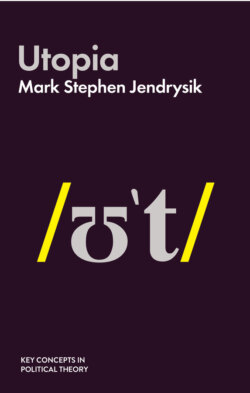Читать книгу Utopia - Mark Stephen Jendrysik - Страница 9
Defining Utopia/Utopianism
Оглавление“Utopia” is a contested term for which “no fixed definition as such is attainable” (Claeys and Sargent 2017: 2). But in order make the systematic study of utopia and utopian thought possible, the term must be defined in a manageable way, keeping in mind there are exceptions to any rule. The idea of utopia is highly plastic and can be made to fit almost any political, economic or social system. It extends in all directions and can encompass any human endeavor. As Ernst Bloch said in his classic work on utopian theory The Principle of Hope, “so far does utopia extend, so vigorously does the raw material spread to all human activities, so essentially must every anthropology and science of the world contain it” (1986: 624). The danger here should be obvious: we can make utopia mean almost anything and attach utopian ideas to almost any human action. We must beware of a utopianism that is “watered down to the point that it can be found everywhere and nowhere” (Ingram 2016: xx). In that light, it is absolutely necessary to provide a rigorous definition of the concept to avoid confusion. However, creating an overly narrow definition risks removing much of the richness inherent in the study of utopia.
Utopianism might be described as a continuum. On one side, we see efforts at reform, exemplified by the “realistic utopia” advocated by the great philosopher of liberalism John Rawls (2001). At the other extreme, we find bold visions of the complete overhaul of society, first seen in Plato’s (possibly) perfect community delineated in Republic. Gregory Claeys says utopia “generally represents … a guided improvement in human behavior towards a substantially better condition, usually where society is considerably more equal and people are much better behaved” (2017: 265). The idea of a better, more just world seems to be a natural human aspiration. Utopianism is the desire to attain that better world here and soon, not in some distant future or after-death state.
In all its many forms, utopia critiques the existing order and, in doing so, “contributes to the open space of opposition” (Moylan 2014: 1). Utopia can be ambiguous, questioning its own very possibility. Utopian writers can demonstrate the dangerous potentials of utopia in dystopian works. Utopian ideas contribute to feminism and queer theory. Utopia may be found in small spaces outside of social norms, as in the heterotopia described by Michel Foucault.
Lyman Tower Sargent defines a utopia as:
A non-existent society described in considerable detail and normally located in time and space. In standard usage utopia is used both as defined here as an equivalent for eutopia or a non-existent society described in considerable detail and normally located in time and space that the author intended a contemporaneous reader to view as considerably better than the society in which that reader lived. (2010: 6)
Ruth Levitas provides a definition that helps explain the place of utopia in political thought:
The core of utopia is the desire for being otherwise, individually and collectively, subjectively and objectively. Its expressions explore and bring to debate the potential contents and contexts of human flourishing. It is thus better understood as a method than a goal – a method elaborated … as the Imaginary Reconstruction of Society. (2013: xi)
Utopia provides a platform to criticize our times and to work toward something better. Any utopian work or theory provides an alternative to present social, economic and political organization. The “Imaginary Reconstruction of Society” must be followed by efforts to really reconstruct society. It is not enough to criticize; we must also provide answers to our seemingly insurmountable problems. But simply reading More’s second book of Utopia, where he gives the reader a report on the close to perfect society of the Utopians, without reading the first book, where he delineates the injustice and imperfection of England in his own times, misses the point. The mixed critique at the heart of utopia remains its critical feature, even when, in the present, dystopian speculations seem to have replaced utopia. Utopian dreams still insinuate themselves into our current dystopias. As Lucy Sargisson has noted, contemporary works mix “eutopian and dystopian possibilities for the human race” (2012: 12).
